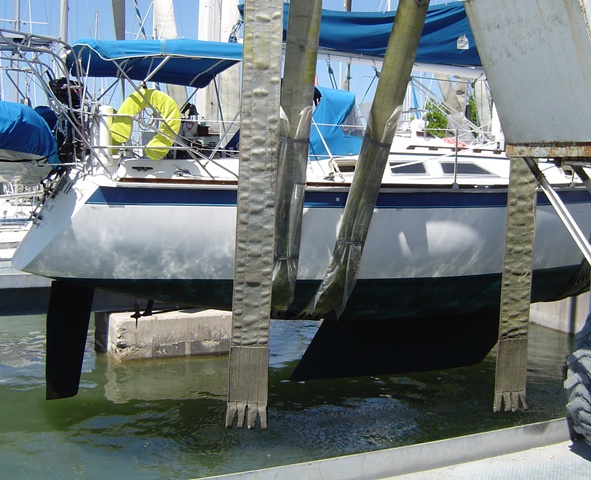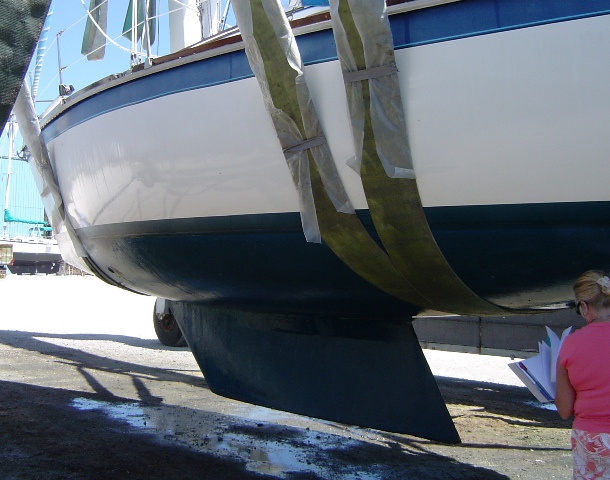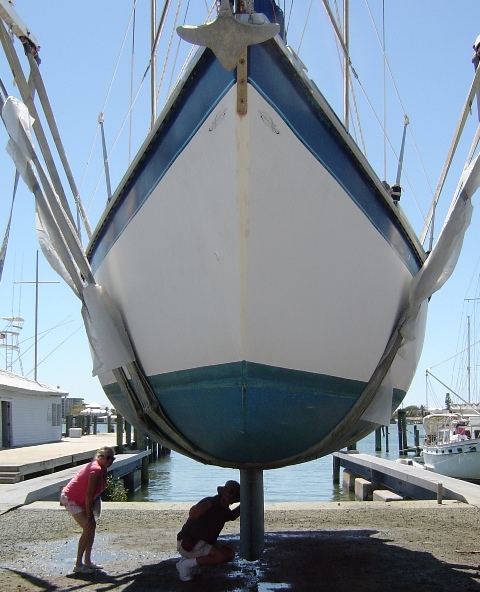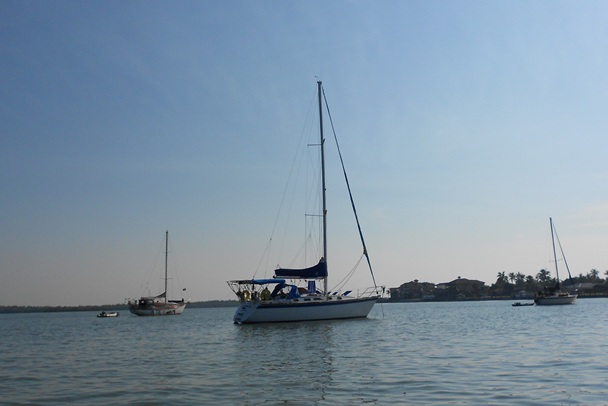There are a bunch of strange terms in the boating world. One used in regards to sailboats is a shoal fin keel. There are lots of different types of keels and I thought some photos of the last haul out of my sailboat might help in understand what a shoal fin keel is.
This is my Hunter 34 with Shoal Fin Keel.

A Fin Keel is any keel that is less than 50% of the length of the sail-plan. Fin keels came into being in an effort to reduce drag. For this topic, the sail-plan is basically the distance from the leading edge of the forward sail measured to the aft edge of the aft sail (I know, that is a terrible over-simplification).
Most modern Fin Keel boats have a separated rudder (skeg hung or spade). Mine is a spade. A skeg rudder is a two-part unit with the forward section mounted permanently mounted to the hull and aft section hinged onto the forward section.
The advantage of a Fin Keel is that they reportedly have less drag so they typically make less leeway and go faster. They tend to be deeper placing the center of the weight of the ballast lower, so in theory they are more stabile for their weight. They are more maneuverable. They take better advantage of the high efficiency of modern sail plans and materials.
Of course, there are a number of disadvantages. They have less directional stability than long keel boats so the tend to wander more under sail. Since directional stability is also a product of the dynamic balance between the sail plan and underbody, in practice they may actually hold a course as well as a full keel. However; I understand that one should expect to make more course adjustments with a fin keel. It is sometimes argued that it takes less energy to make these corrections so a fin keel may also require less energy to maintain course. I don’t know that any of this has been accurately studied and suspect that it varies a lot of design to design. In my limited experience, I think a Full Keel boat is much smoother in rough water.
Shoal Keel
A shoal keel is just a keel that is not as deep as a deep keel. Often the manufacturer builds a boat with a deep or regular draft keel and then offers a shoal keel option for those that need a boat with a decreased draft. The advantage is less draft so they can use thinner water. This is great for cruising the Bahamas and gunkholing.
So, a shoal fin keel is a boat with a “short” or “thin” fin keel.





Leave a Reply